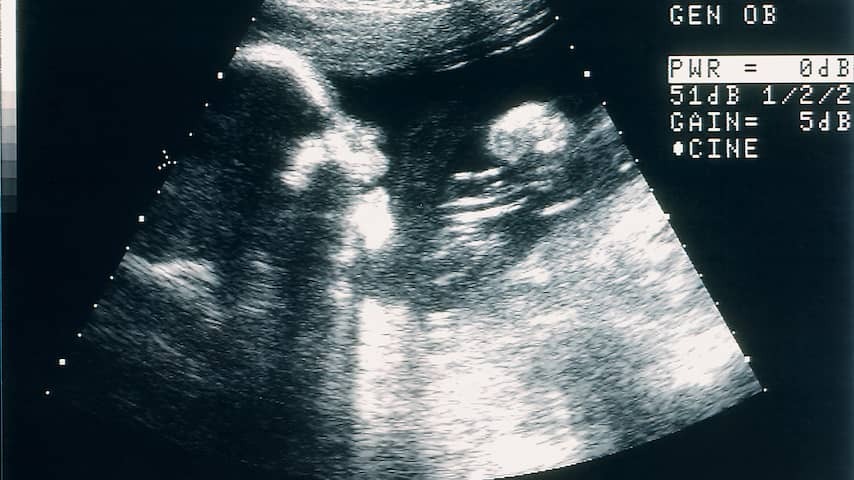
It is sometimes difficult for pregnant women to feel if their baby is still moving properly. Extra ultrasound measurements can offer a solution, research shows. These measurements allow gynecologists to better assess whether to induce labor, preventing the baby from experiencing oxygen deficiency.
In the final phase of pregnancy, women sometimes feel their baby moving less, writes the University Medical Center Groningen (UMCG). The UMCG, together with Amsterdam UMC, conducted research in 23 hospitals into a way to gain more insight into this.
In most cases, it is not serious if the baby moves less. For example, it may be that the child is lying differently. But it can also indicate that it has an oxygen deficiency, the researchers write. In such cases, it is better to induce labor faster (artificially stimulate).
If pregnant women are now worried about their child, they often have to undergo an examination in the hospital. Then a heart film is often made. The hospital also looks at the growth of the baby and the amniotic fluid.
Instead, the researchers have now looked at the effects of an extra ultrasound measurement. They examined the resistance in the blood vessels of the umbilical cord and the baby’s head, writes the UCMG. With these results, they can better assess how the baby is doing and whether the placenta is working properly.
According to Sanne Gordijn, the gynecologist leading the research, an “abnormal value” may indicate that the placenta is not working properly and that the baby should be born earlier. The hospital can then induce labor. “With a normal value, it would be better to wait for the natural moment,” she explains. The baby is not quite ready for it yet.
This extra measurement results in fewer problems during delivery than with the current policy, says the Groningen university hospital. The research was published on Thursday in the medical journal The Lancet.